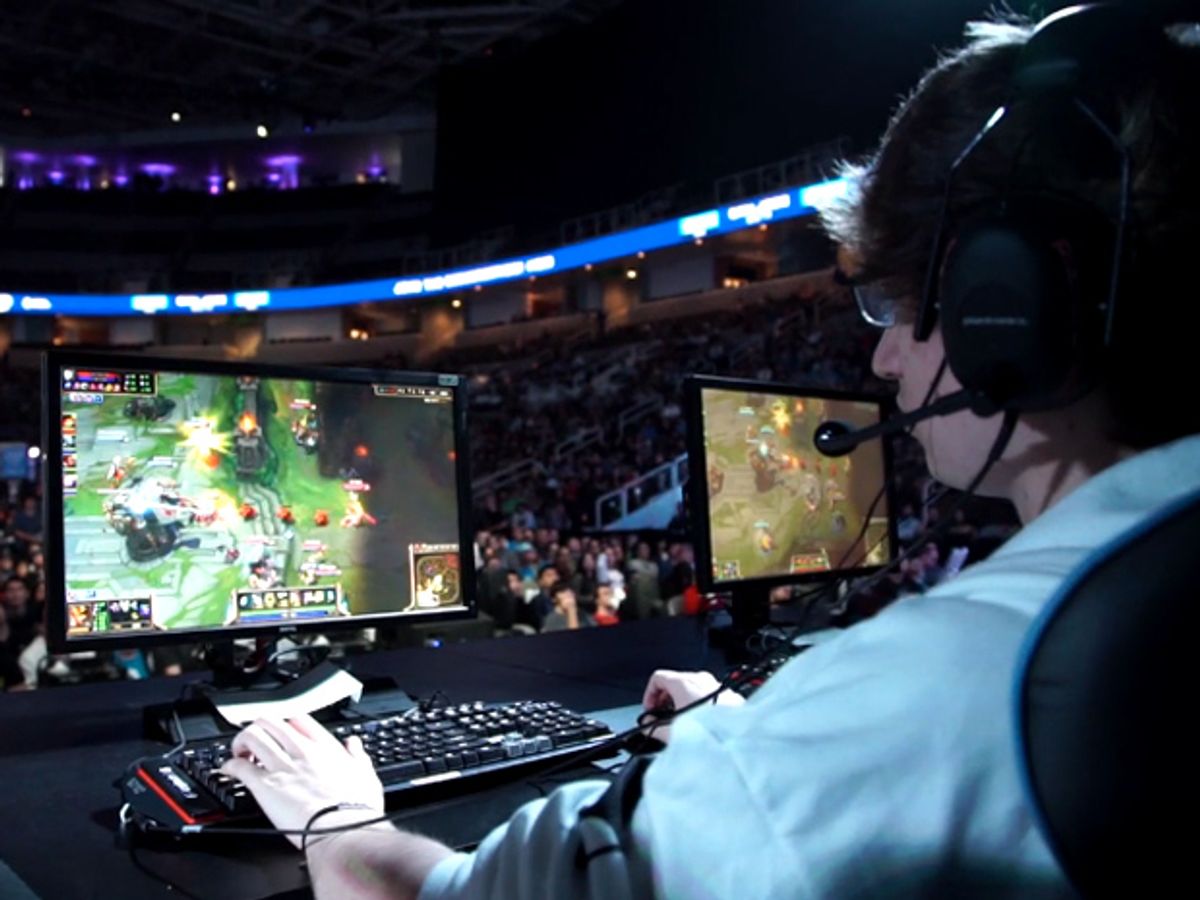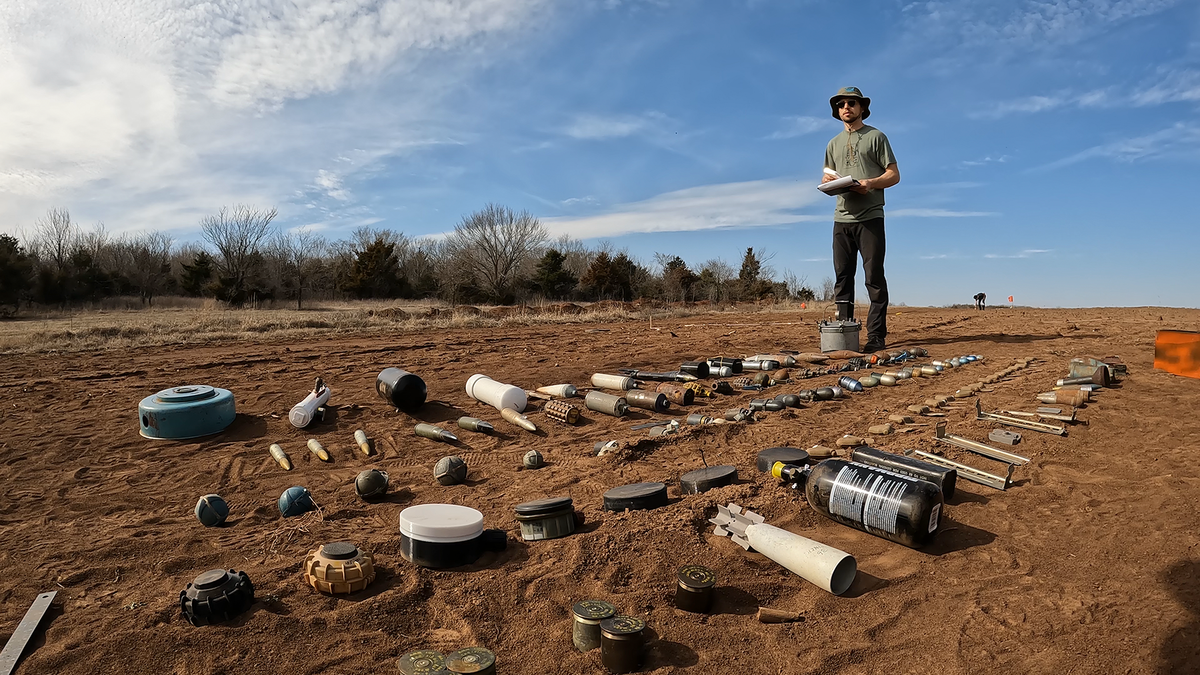People have played American football, basketball and baseball in some form for more than a century. The online video game “League of Legends” represents the most popular game in the growing “eSports” scene after little more than five years of existence. But game tournament organizers and professional gamers face much uncertainty in their quest to make eSports a sustainable industry rather than just a flash in the pan.
Many of the people involved in eSports make no secret of that uncertainty in an upcoming documentary film called “All Work All Play.” The film received a work-in-progress screening at the Tribeca Film Festival in New York City on Monday. After the screening, a moderator posed a question to a panel consisting of the documentary director and several representative cast members: Will eSports go extinct in the manner of medieval jousting or achieve mainstream success similar to that of golf?
“They’re trying to build it to be sustainable,” said Patrick Creadon, director of “All Work All Play.” “They’re not in it for the short term, they’re not trying to make a buck in a year and leave. They’re trying to build a new sports industry.”
South Korea stands out as the leading example of a mature eSports industry that has grown on the backs of popular games such the “Starcraft” series and now “League of Legends.” South Korea has well-funded professional teams that routinely recruit players from one another and has broadcast game tournaments and championships on cable TV since the late 1990s.
The best professional gamers have the cultural celebrity status of athletes and can earn salaries of more than $100,000, not counting other sources of revenue such as prize money. In November 2015, Kotaku picked up on South Korean media reports that Chinese eSports teams were attempting to lure away the best South Korean “League of Legends” player with an offer worth almost $1 million.
The eSports scene has grown more slowly outside of South Korea and Asia in general. More recently, it has gotten a boost from wildly popular games such as “League of Legends,” which is currently considered the world’s most popular game with 67 million people playing every month. The free-to-play online game can be daunting for new players and casual spectators to learn. It typically features teams of five players fighting on a three-lane map with the goal of destroying the rival team’s base. Still, the “League of Legends” World Championships—hosted by by game maker Riot Games—drew enough viewers to rival the number of people who watched games of the NBA Finals and the World Series.
But eSports is nowhere close to rivaling the most popular professional sports industries in terms of mainstream popularity or attracting money. That means everyone from independent eSports tournament organizers to the best professional players can still face uncertain times, as they attested to during the Tribeca Film Festival panel.
For instance, a majority of the best professional “League of Legends” players in North America dropped out of high school or college to play the game. That leaves them with little or no career security to fall back on once they age out of playing, which tends to happen around their mid to late 20s.
“It’s hard for us to create a pathway past gaming, because we have no degree and we don’t make as much money as football players or basketball players, who get huge endorsements so they only have to play a couple of years and they’re set,” said Hai “Hai” Du Lam, captain of the North American “League of Legends” team Cloud 9. “We make good money, but not enough to just be set for the rest of our lives.”
The typically limited shelf life of video games can also pose a challenge for creating a sustainable eSports industry. Unlike baseball or basketball, even the most popular video games tend to fade within several years. That’s a tricky situation for the Electronic Sports League (ESL), the oldest international eSports league in existence. ESL helps organize and run tournaments for a wide variety of games, such as the Intel Extreme Masters World Championship that featured in the “All Work All Play” documentary. (The 2015 Intel Extreme Masters event featured “Starcraft II” and “League of Legends.)
Michal “Carmac” Blicharz, progaming director for ESL, currently represents the closest person to a main protagonist for the documentary. His obvious passion for his globetrotting job of organizing eSports tournaments is balanced out by his frankness about whether or not eSports can evolve into a more sustainable industry. He was the one who originally likened one possible future for eSports with the fate of medieval jousting.
Despite his self-professed cynicism, Blicharz raised some optimistic points in the favor of eSports during the panel discussion. For example, he pointed out that the “free-to-play” business model of “League of Legends” may help extend its shelf life in the long run, presumably because it removes the financial barrier to entry for new players and avoids the subscription fee model that could eventually turn off veteran players. (Riot Games earns more than $100 million per month through optional microtransactions that allow players to customize their characters, according to Creadon.)
“Ever since games like ‘League of Legends’ got introduced with a free-to-play model, there’s a good chance those games will be played for decades rather than for 3 to 4 years and then get replaced by something new,” Blicharz said.
Still, some eSports teams have a plan for how to survive such uncertainties in the long run. Jack Etienne, founder of Cloud 9, has created an eSports organization that has competitive teams for a variety of games, including “League of Legends,” “Counter-Strike: Global Offensive” and “Super Smash Brothers Melee.”
“I’m looking to build a brand that people will recognize regardless of what game they’re playing,” Etienne said. “It’s really important to me that friends introduce Cloud 9 as a brand to each other and that the brand loyalty remain strong, because I feel like that’s what is going to take us from game to game and take us from a one-year operation to a decades-long operation.”
Jeremy Hsu has been working as a science and technology journalist in New York City since 2008. He has written on subjects as diverse as supercomputing and wearable electronics for IEEE Spectrum. When he’s not trying to wrap his head around the latest quantum computing news for Spectrum, he also contributes to a variety of publications such as Scientific American, Discover, Popular Science, and others. He is a graduate of New York University’s Science, Health & Environmental Reporting Program.



